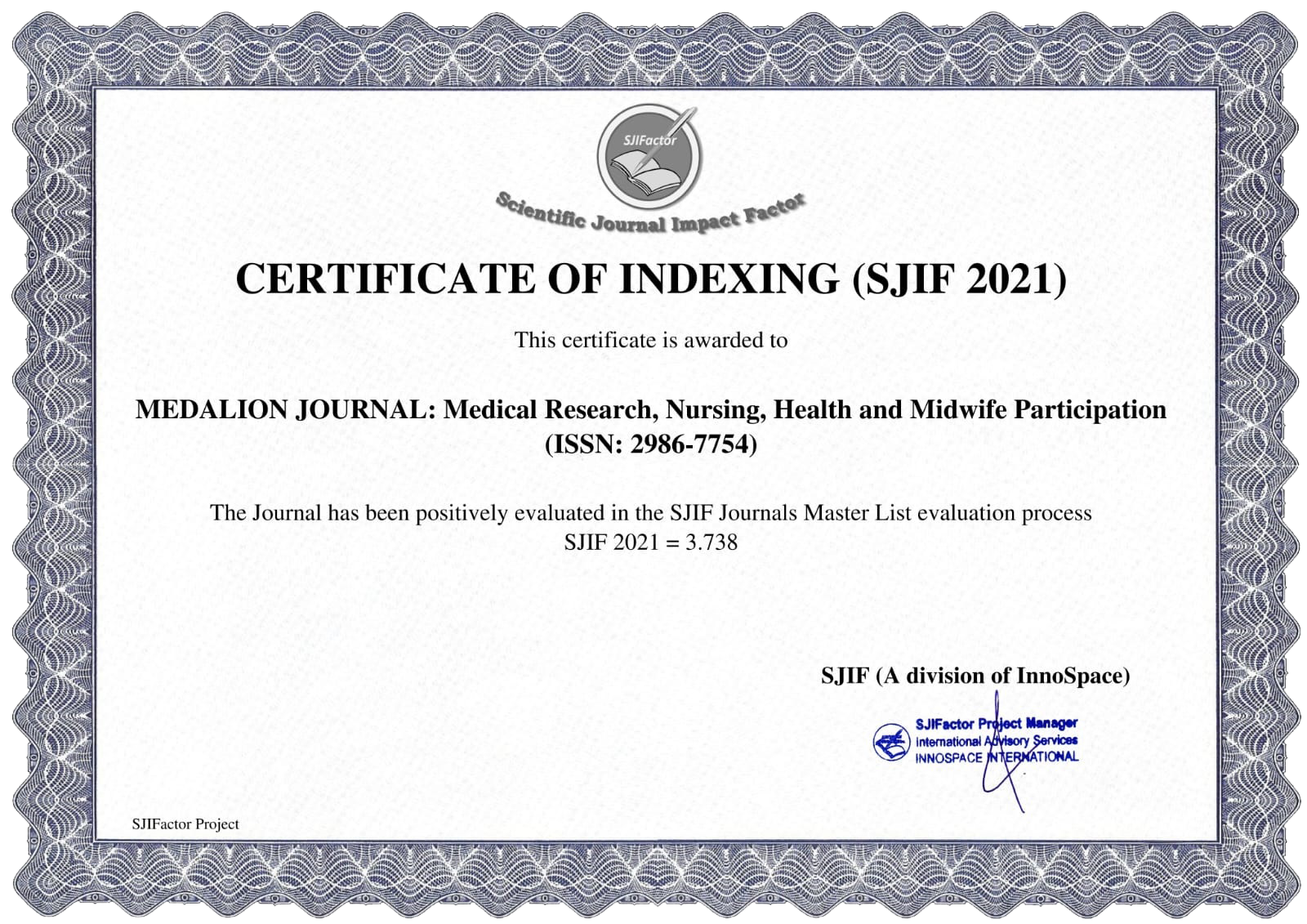SILENT STROKE, LOUD SYMPTOMS : ISOLATED APHASIA IN HYPERTENSIVE EMERGENCY-INDUCED TRANSIENT ISCHEMIC ATTACK
Main Article Content
Nona Suci Rahayu
Putri Irmayani
Ari Bandana Tasrif
Aphasia is a neurological dysfunction that arises due to disturbances in the brain regions responsible for language processing. These areas are predominantly localized within the frontal cortex and the temporoparietal regions, which regulate both motor and sensory speech functions. Disruptions in these areas may result from ischemic conditions affecting the brain. Isolated cases of aphasia without other accompanying neurological deficits are rarely reported. This article presents a case study of a 66-year-old female patient with a history of chronic hypertension who presented to the emergency unit with a sudden onset of speech difficulties without any other neurological impairments. Initial examination revealed significantly elevated blood pressure at 220/110 mmHg, accompanied by severe headache. A diagnosis of Transient Ischemic Attack (TIA) was supported by clinical findings that resolved within 24 hours and imaging from a non-contrast head CT scan, which showed normal brain parenchyma. The primary focus of initial management was the restoration of cerebral blood flow through the administration of neuroprotective agents and antiplatelet therapy, aiming to optimize cerebral perfusion and achieve clinical recovery of aphasia. This case analysis highlights the importance of prompt and appropriate management in hypertensive emergencies, emphasizing the detection of clinical signs of TIA or complete stroke, even in localized neurological deficits without additional accompanying symptoms.
Fennis T, Compter A, (2013) isolated aphasia a typical presentation of presumed cardioembolic transient ischemic attack or stroke? Cerebrovascular Diseases.35(4) 337-340
Lavallée P, Sissani L, Amarenco P. (2017) Clinical Significance of Isolated Atypical Transient Symptoms in a Cohort with Transient Ischemic Attack Stroke.48(6) 1495-1500
Adam Victor. (2014). Principles of Neurology. Mc Graw Hill Medical. New York
Cantone, M., Lanza, G., Puglisi, V., Vinciguerra, L., Mandelli, J., Fisicaro, F., … Bramanti, A.(2021). Hypertensive Crisis in Acute Cerebrovascular Diseases Presenting at the Emergency Department: A Narrative Review. Brain Sciences, 11(1), 70.
Wajngarten M, Silva GS. (2019). Hypertension and Stroke: Update on Treatment. Eur Cardiol. Jul 11;14(2):111-115. doi: 10.15420/ecr.2019.11.1. PMID: 31360232; PMCID: PMC6659031.
Khare S. (2016). Risk factors of transient ischemic attack: An overview. J Midlife Health. Jan-Mar;7(1):2-7. doi: 10.4103/0976-7800.179166. PMID: 27134474; PMCID: PMC4832890.
Albers GW, Caplan LR, Easton JD, Fayad PB, Mohr JP, Saver JL, Sherman DG; TIA Working Group.(2002) Transient ischemic attack--proposal for a new definition. N Engl J Med. Nov 21;347(21):1713-6. doi: 10.1056/NEJMsb020987. PMID: 12444191.
Kleindorfer D, Panagos P, Pancioli A, Khoury J, Kissela B, Woo D, Schneider A, Alwell K, Jauch E, Miller R, Moomaw C, Shukla R, Broderick JP. (2005 ). Incidence and short-term prognosis of transient ischemic attack in a population-based study. Stroke. Apr;36(4):720-3. doi: 10.1161/01.STR.0000158917.59233.b7. Epub 2005 Feb 24. PMID: 15731465.
Amarenco, P., Lavallée, P. C., Labreuche, J., Albers, G. W., Bornstein, N. M., Canhão, P., … Wong, L. K. S. (2016). One-Year Risk of Stroke after Transient Ischemic Attack or Minor Stroke. New England Journal of Medicine, 374(16), 1533–1542. doi:10.1056/nejmoa1412981
Hayashi, T., Sehara, Y., Kato, Y., Fukuoka, T., Deguchi, I., Ohe, Y., … Tanahashi, N. (2014). Clinical Characteristics of Cardioembolic Transient Ischemic Attack: Comparison with Noncardioembolic Transient Ischemic Attack. Journal of Stroke and Cerebrovascular Diseases, 23(8), 2169–2173. doi:10.1016/j.jstrokecerebrovasdis.2014.04.005 10.1016/j.jstrokecerebrovasdis.2014.04.005
Lewandowski CA, Rao CP, Silver B. (2008). Transient ischemic attack: definitions and clinical presentations. Ann Emerg Med. Aug;52(2):S7-16. doi: 10.1016/j.annemergmed.05.017. PMID: 18655918.





